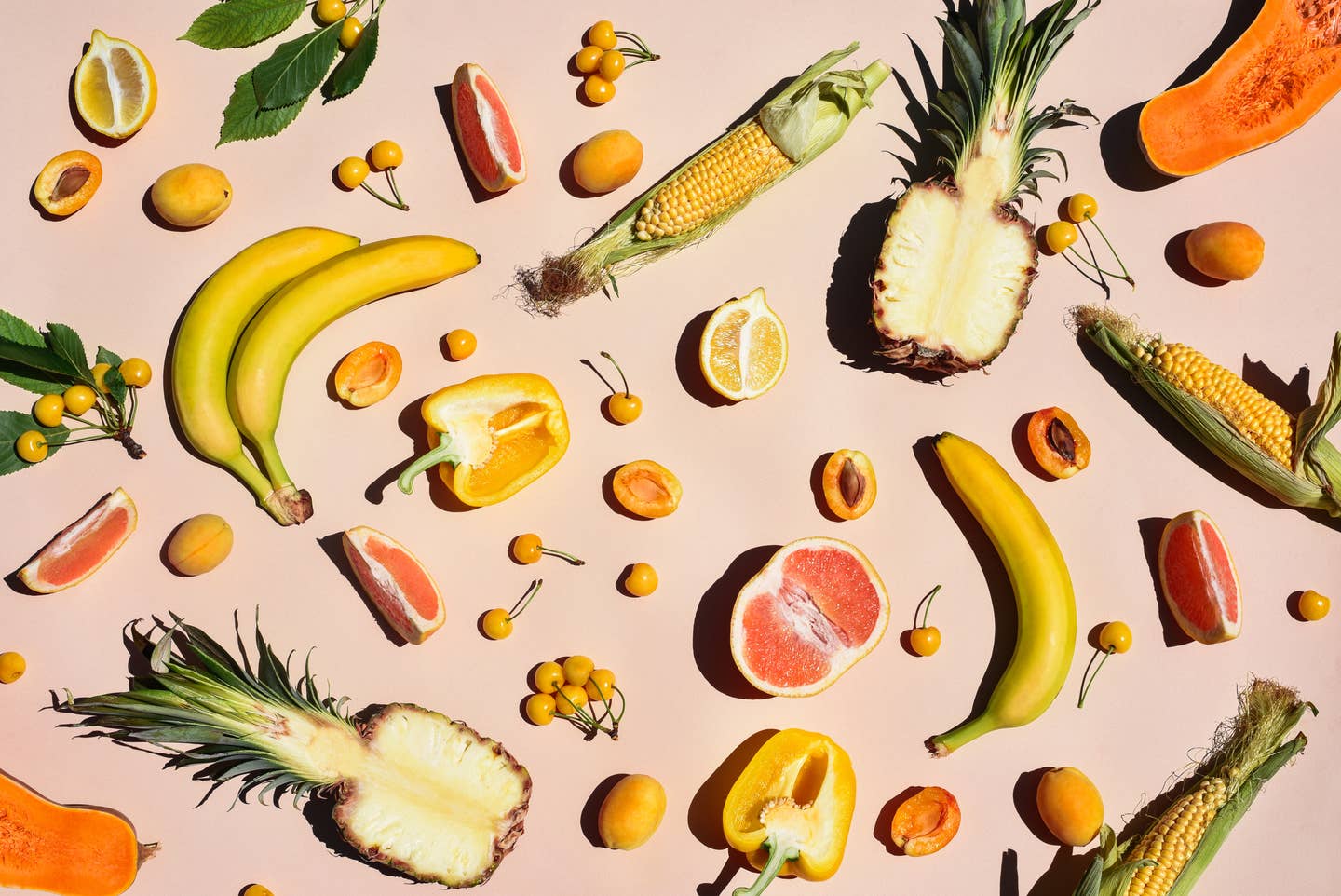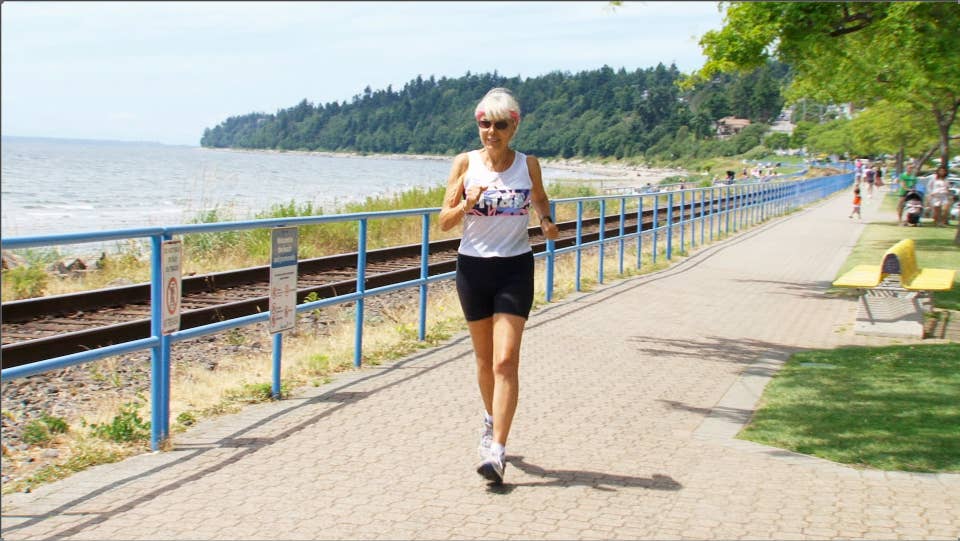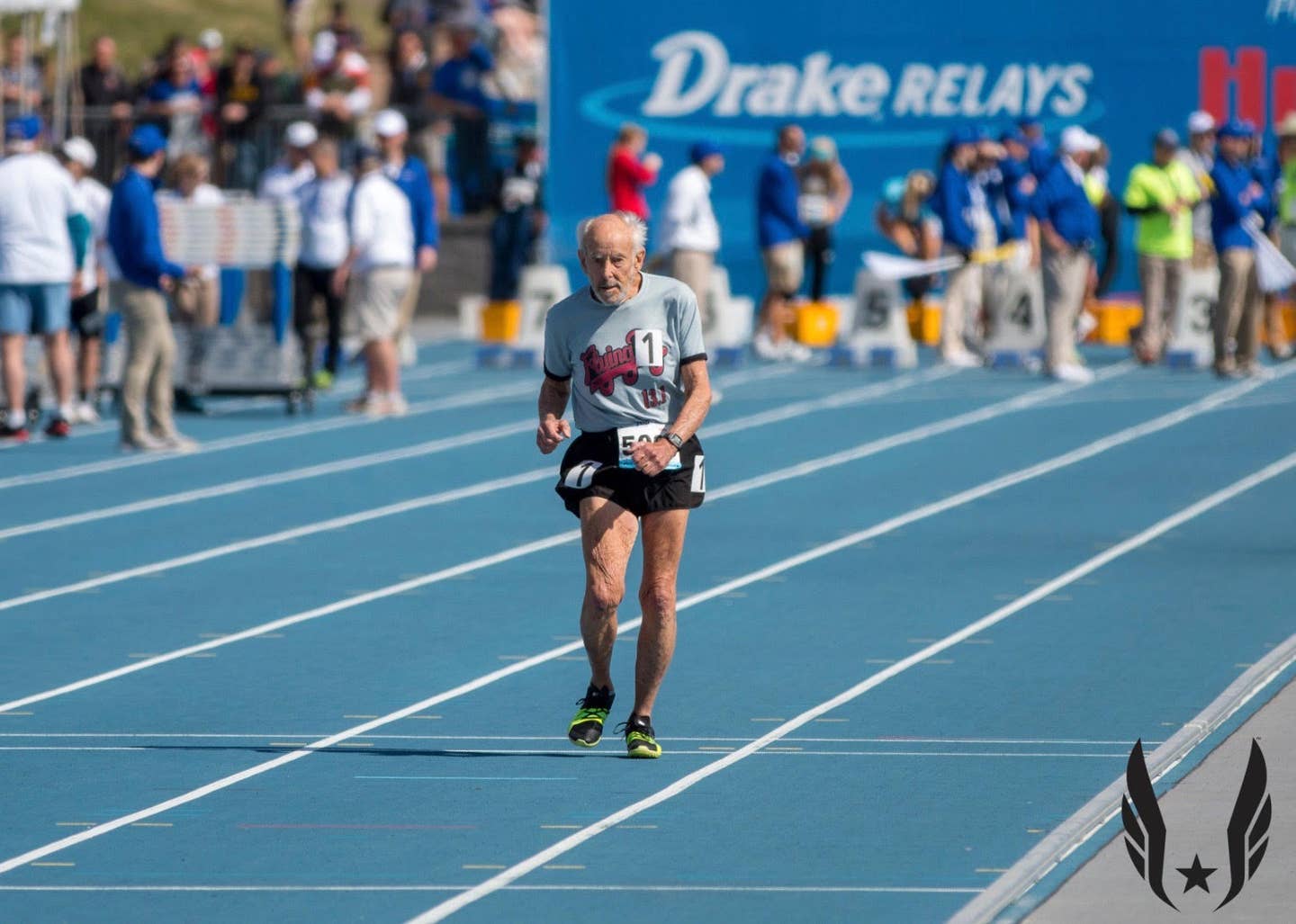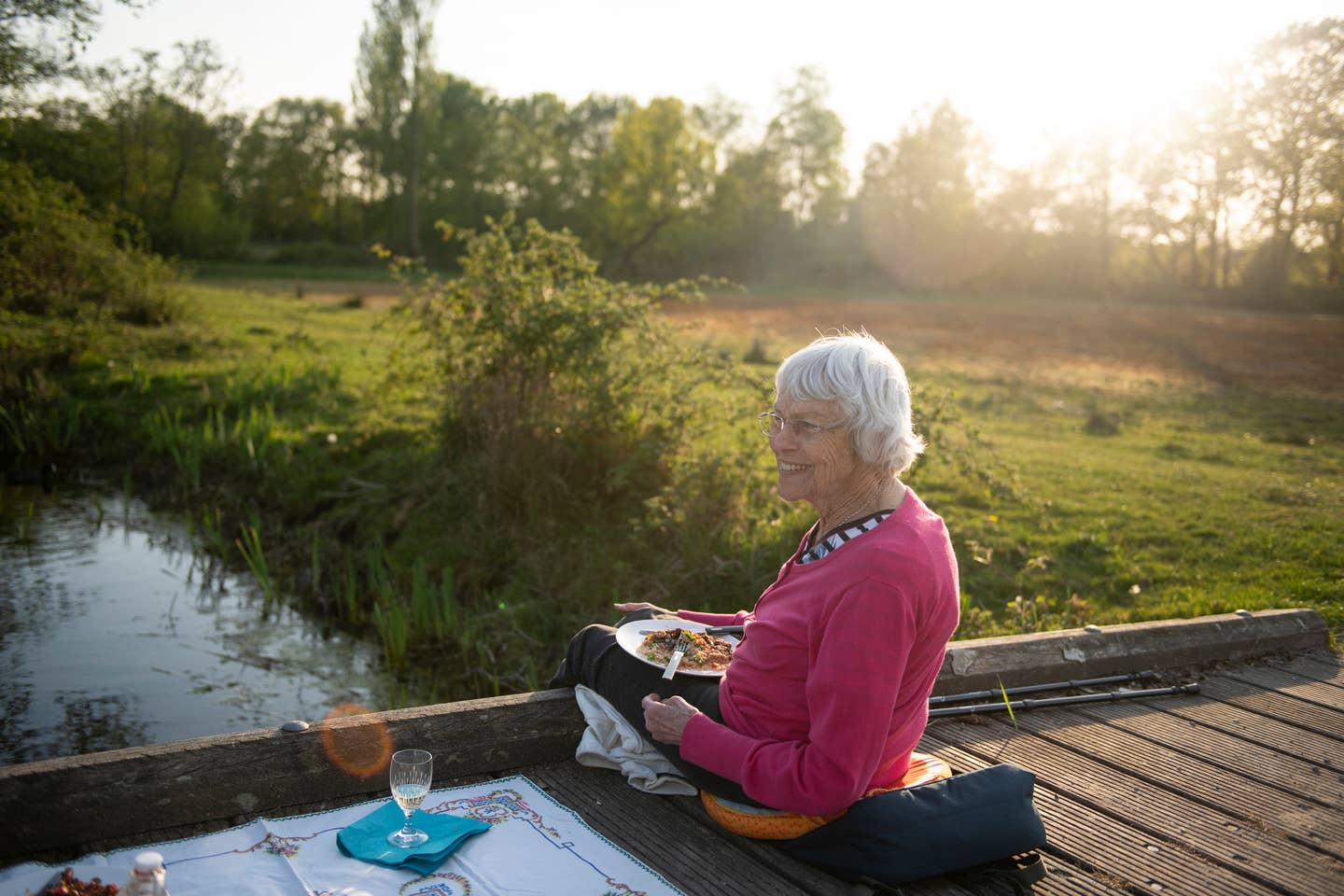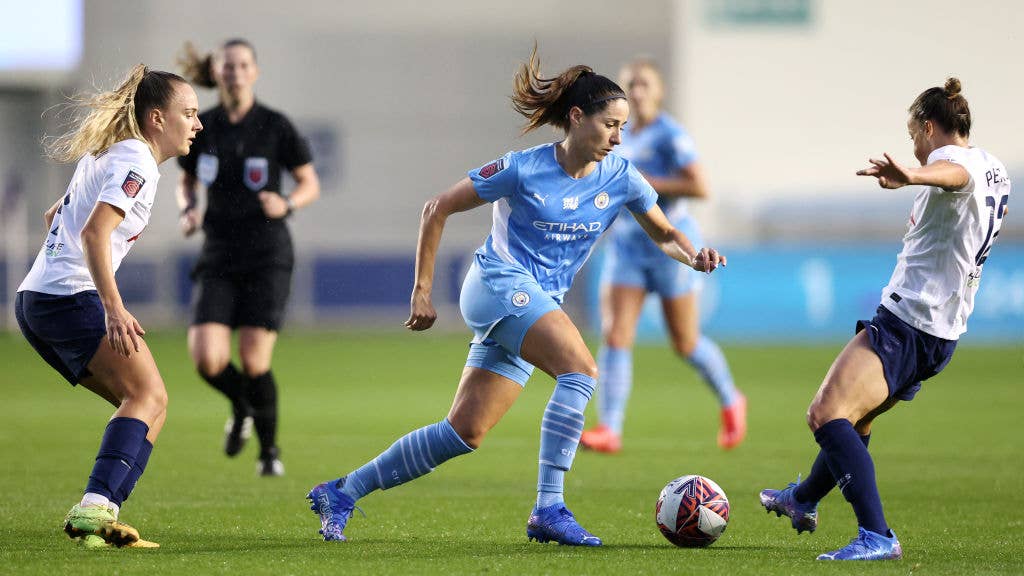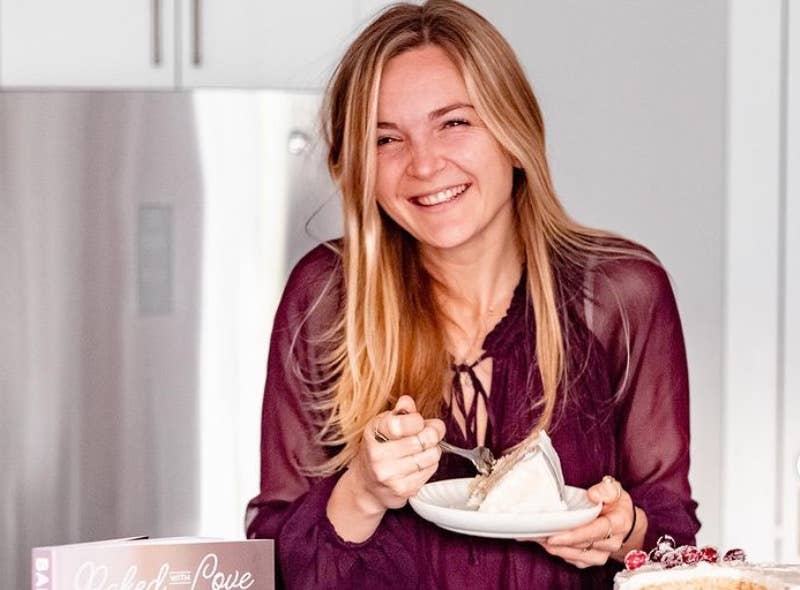
How Starting a Vegan Blog Helped This Popular Baker End Her Eating Disorder
Cakes, brownies, pies, cookies, frostings, ice cream... every type of decadent dessert you can imagine, Britteny Berlin serves up on a plant-based platter on her beautiful blog and Instagram posts. She is the mastermind behind the popular vegan baked goods site, The Banana Diaries, and the creator of The Ultimate Guide to Your Vegan Thanksgiving, and a frequent recipe contributor to The Beet. But Britteny wants to share more than delicious recipes with her audience. She also hopes to help others by telling her personal story, of how going vegan saved her life and helped her get over a serious eating disorder.
Last week, when we called Britt to thank her for all the scrumptious recipes she's created for The Beet, she opened up. In between us expressing our appreciation and gratitude and planning the Thanksgiving feast story, Britt uncovered her vegan journey, not as a baker, but as someone who spent years struggling with her relationship with food, and found the road to recovery through a vegan lifestyle.
When Britt was in 8th grade, she developed an eating disorder that she says took over her identity. She experienced a profound fear of food and was forced to drink Ensure to keep up her weight. Her parents and doctors sent her to a treatment center to help find her way back to health. Britt recalls her hardest moment, when her friends took his own life due to serious depression, which led Britt to consider doing the same, "I did have a suicide attempt at that point, but I failed."
Years later, after graduating from Georgetown University, Britt lived in New York and worked as a copywriter for an ad agency, however, even though she was busy, Britt said she still felt like she lacked a "sense of purpose." Her depression lingered. The death of her friend was weighing on her every day and she knew that if she didn't do something meaningful, one day that could be her. Instead of watching her life crumble, Britt put all of her focus into working on her mental health. She spent hours researching treatments to alleviate her pain, any approach that didn't involve medication. She found two unconventional doctors, both of whom specialized in healing with natural foods and techniques, Britt decided to try healing her body and mind with plant-based food, which ultimately saved her life. She could walk away from her eating disorder as if it were finally a thing of the past. Her anxiety and depression both lifted, all because she found meaning in creating The Banana Diaries. To Britt, bananas represent freedom. Her message to others struggling with mental health and eating disorders:
"Whatever you’re going through, you can get past it. You never come up against something you can’t overcome, it just takes the mental space to realize it," Britt said. If you or a loved one is struggling with an eating disorder, anxiety, or depression, Britt shared her journey to inspire you to find light at the end of the darkness. Here is her deeply personal story, helpful advice, positive mantras, and how she ended up finding joy through food, the very thing that once set her back.
Editor's Note: If you or a loved one is struggling with depression, anxiety, or thoughts of suicide, contact the National Suicide Prevention Lifeline at 800-273-8255 to seek help.
The Beet: Why did you go vegan?
Britt Berlin: It’s a long story. I developed an eating disorder in 8th grade after I broke my arm in gymnastics. I think it triggered my eating disorder because it made me feel like I was still in control. I went from practicing gymnastics from Monday through Friday to nothing. It wasn’t so much about the exercise, it was more about having my schedule change so drastically, and middle school was just pretty tough.
While I was in treatment, even though I had never liked eating meat, I wasn’t able to make that choice because you’re not allowed to decide how you want to eat. I continued eating disorder treatment through high school, and I was also struggling with depression. I didn’t think about going vegan or vegetarian at that point because I was hit by depression. At my worst, I didn’t want to keep living and was taking medications just to get through the day.
During my junior year of college, I had a wake-up call. One of my friends, Adam, took his own life while I was battling with my own depression, and I realized I had to make a change, or that could be me. I did have a suicide attempt at that point, but I failed. I started getting treatment for my depression and still hadn’t fully recovered from my eating disorder when I graduated from college and knew I wanted to continue treatment.
I was working as a copywriter at an ad agency in New York but I still didn’t feel like I had a sense of purpose. I was dead set on fixing my mental health, once and for all. I started researching and found Dr. Joe Dispenza, a neuroscientist who specializes in food as medicine, and Dr. Kelly Brogan, who specializes in alternative medicine. Conventional treatment never helped me, so I wanted to try something different. With their help, I was able to heal my depression and leave my eating disorder behind.
TB: How did your recovery finally change your life?
BB: After suffering for so long from an eating disorder and depression, it had become my entire identity. So when I got better, I realized I didn’t know who I was. It was such a unique opportunity. I had the chance to create who I was, and also remember who I was deep down. That’s when I started getting into recipe development. As a kid, I had loved to bake and paint and just create. My siblings and I would always bake from scratch when we had time together. I got back into that, and I started The Banana Diaries to share healthy eats.
I wasn’t eating meat because I was just trying to eat in a way that made me feel good. Eventually, it got to a point where I made these recipes but since I had stopped eating meat I also began to cut out eggs. I decided to transition the Banana Diaries from just Instagram into a full blog and make it vegan. I struggled with labeling it because even though I was eating plant-based, I didn't want to trigger my eating disorder by being restrictive. I also knew that some of my family members might be concerned that my plant-based diet was a way of restricting again. I had to be careful about that; I struggled to call myself or label my recipes, vegan. It was just a natural progression. The last step was cutting out dairy. By then, I had stopped eating eggs and meat, so it was effortless for me. I’ve now been meat, dairy, and egg-free for two years.
TB: Can you describe your experience with treatment?
BB: On my first day in treatment, I was so angry to be there, and I hated the whole idea of having to be at a treatment facility. We didn’t get to choose what we ate, and for my first meal there, we were served a salad with chicken and feta. I didn’t want to eat the salad both because I was afraid to, but also out of stubbornness. I didn’t eat it, and they told me I couldn’t leave until I finished. I wouldn’t cooperate, so they tried to give me Ensure, which is the worst tasting thing ever. They attempted to force-feed me and threatened to bring my mom in if I wouldn’t drink it. Based on my experience, I want people to know it's not the end-all-be-all, you're eventually going to get out of treatment--or perhaps have a different experience than me.
TB: What helped you decide to be comfortable calling yourself vegan?
BB: Many members of the meditation community are advocates for plant-based eating. At first, I was resistant because I’ve never liked being told what to do. When someone tells me to do something, I usually want to do the opposite. I think that’s why I liked Dr. Joe because he didn’t focus on the nutrition part of healing. It was so freeing because it was the first time a doctor didn’t just focus on nutrition, but focused on healing the mind. For me, my food issues had always only been an externalization of what was going on mentally. What really clicked for me was realizing eating plant-based wouldn’t trigger me to restrict food.
I had always had wanted to be vegan since I was little. When I was seven years old, my parents took me to a seafood restaurant with a lobster tank. I was only seven, but I stood in front of the claw machine and wouldn’t let people take the lobsters. The manager had to ask us to leave because I refused to move. Not eating animals has just always been something I gravitated towards.
TB: How did your doctors or treatment team react to your decision to go vegan?
BB: When I was working at my corporate job, I was still seeing a dietitian twice a month. She was a significant role in helping me overcome my eating disorder because she had also struggled with one in the past. She didn’t care whether I ate vegan or gluten-free, she was able to help me want to eat. It was such a big help for me because, in the past, my dieticians had never let me be vegan (since it's a type of restricting). She was the first one who was willing to make a meal plan that was vegan. It’s funny because if there’s something you’re doing differently, it feels like it’s such a huge deal. But you just have to live your life. It doesn’t have to be on other people’s terms.
TB: How has eating vegan helped your eating disorder recovery?
BB: The thing that helped me the most was just not labeling how I was eating. That way, I wasn’t hyper-focused on removing things from my diet but adding things instead. Many people are overly focused on what they can’t I eat instead of what they can eat. You can eat so much on a vegan or plant-based diet! The only thing you’re cutting out is meat, eggs, and dairy. I also stopped counting calories. I’m a big runner, so instead of counting calories, I could focus on making sure I was getting the proper nutrition for recovery. I was worried because I knew that sometimes, after going vegan, people make the mistake of cutting out everything and lose a bunch of weight. I didn’t want to lose weight, and I had in the past used dairy as my primary source of protein. To stay healthy, I needed to have enough protein and B12, so when I cut out dairy I would go to the doctor to get blood work done to check.
When I was still eating dairy, I started developing knee pain but it went away as soon as I cut out dairy. I had no more knee pain. Before going plant-based, I would get so many stress fractures. and I was so afraid that they would worsen after I stopped eating dairy but knock on wood, I haven’t had any since.
TB: Have you seen other improvements since going vegan and recovering?
BB: My running has improved. I’m now as fast as I was in high school! When I had my eating disorder in high school, I was only allowed to run after I’d gained enough weight. I wasn’t able to maintain my recovery weight, so I had to stop running. I couldn’t run for most of my eating disorder because either I wasn’t allowed to or I didn’t have enough fuel. But now, on a plant-based diet, I’ve been able to increase my mileage by 20 percent.
TB: How did you incorporate new foods into your diet?
BB: Nut butter, for example. I had such a fear of it during my eating disorder, but it’s such a crucial part of a vegan diet. I gradually was able to let go of my fears of high-calorie foods. I’m so grateful I could start eating foods like nut-butter, seeds, beans, quinoa, and rice because they’re such a big part of my diet now. If I still had an eating disorder, I wouldn’t be a healthy vegan; I would just be eating lettuce. I’m grateful that I was able to let go of those fears.
I realized that I was not triggered into a restrictive pattern even after labeling myself as a vegan. I actually added foods.
I met people in recovery, people I could tell had an eating disorder who went plant-based, and I would be concerned. I think that, truthfully, the system [of controlling what people eat in treatment] does not help people get better.
During my treatment, I was told that I was going to have to deal with my eating disorder for the rest of my life. I think a lot of eating disorder treatment can get you physically healthier, but so much of an eating disorder stems from mental health, and there isn’t enough focus on that. I was able to address the mental component with the other doctors I found and looked at the reasons my eating disorder developed in the first place. I struggle with OCD, and many of my family members do, too. I know eating disorders can run in families, and there are members of my family that have eating-disorder tendencies. The doctors I had as an adult helped me understand why my eating disorder began in the first place. It was crucial for me to recover fully. If I hadn’t addressed the mental component, I don’t think I would have been able to eat a vegan diet healthfully, without food running my entire life. Now, I don’t think about food in a disordered way: I don’t think about what I’m going to eat until I’m hungry, and I now eat intuitively.
TB: What advice would you give to someone recovering from an eating disorder?
BB: It’s okay not to be perfect at first because it’s really a learning curve. It’s really good to not worry about labeling [yourself vegan or plant-based]. There are so many different ways to go about it. I know some people who will eat plant-based for five days out of the week and slowly transition into seven days. For me, it was just a natural process of cutting out meat, then eggs, and then dairy. I think the perfectionism that comes with eating disorders leaves people wanting to “eat perfectly” all the time, but it’s okay not to be perfect while you’re building a new way of eating healthy.
TB: Is there any phrase or mantra that helps you get through difficult times?
BB: “Still, I Rise,” is one of my favorite quotes from Maya Angelou. It really helped through my darkest moments. There was a point when I just didn’t want to continue living, so the quote reminded me that I could still rise above all the things I’d gone through. With depression, even the heaviest of emotions can be thought of as just being a wave and they’ll pass. You just have to ride them out, because whatever you’re going through, you can get past it. You never come up against something you can’t overcome, it just takes the mental space to realize it.
Interested in Vegan Baking and Recipe Development? Britt Shares Her Advice
TB: How did The Banana Diaries get its name?
BB: Bananas were my favorite fruit when I was a baby. I think it was my second word. They were always my go-to snack. When I struggled with my eating disorder, I was afraid to eat them because I thought they were too high in calories and sugar. When I finally overcame my fear, I remembered how much I loved them. Naming my business, The Bannan Diaries felt like a celebration of my freedom.
TB: How did you start banana diaries, and how did it grow into what it is today?
BB: It started with an Instagram, and at that point, I was just doing a little bit of my own recipe development. I was also a big reader of other bloggers. They really inspired me, and at first, I was just sharing mostly other blogger's creations and just everyday eats. I just wasn’t really sure what I wanted to do with my account, it was just a fun outlet for me. I started the Instagram account in 2016, but I didn’t pay much attention to it. Then, I started to post on it daily, just sharing what I was making, and I realized I also wanted to have a blog. At first, on the blog, I was posting non-desert things, until I realized I just really preferred making desserts. I was posting 70% desserts, but it snowballed into just desserts all the time. It took a lot of practice and a lot of hours.
TB: What’s your all-time favorite recipe you’ve posted?
BB: I know it sounds boring, but it’s probably my Vanilla Cake. It’s just such a good one. People love it.
TB: What advice would you give someone who is interested in becoming a food blogger?
BB: The biggest challenge with recipe development is having patience. I would suggest choosing your favorite recipe from someone and make it a bunch of times until you can do it perfectly. It can be really hard at first to master techniques consistently. You can also always use Google to help you learn cooking, baking techniques. It’s important to remember that it takes a lot of patience and that’s it's ok to cry.
TB: What are the best vegan baking alternatives?
BB: Apple sauce is a wonderful replacement for eggs in baked goods like cakes, cupcakes, and muffins. Flaxseed eggs also work really well. I haven’t had too much success with aquafaba, as an egg replacement, but I know a lot of people have. Mashed bananas are great for pumpkin purees. We’re so lucky to be vegan in 2020 because there are so many dairy-free substitutes.
At the end of the interview, Britt shared words of wisdom about food, and life.
"I just think everyone should just be doing what they love. It might sound corny, but life is just so short. There’s not a day that goes by that I don’t think about my friend who passed away. It could be taken from you at any moment, so just live without regret, and do you."
More From The Beet

